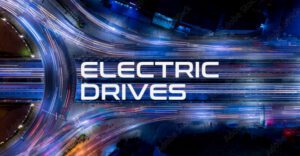EVE Energy, one of the world’s leading battery technology companies which produces lithium cells used in electric vehicles (EVs), has announced it is increasing production at four new factories in Jingmen, Hubei province in China, totalling 73GWh of capacity.
The reason for this expansion in production is in response to significant demand as global electric vehicle sales continue to grow. The company held a ceremony to mark their commissioning, while also breaking ground for the construction of a 60GWh Super Factory, also in the central Chinese city.
During the ceremony, Dr Yuan Dingding, EVE Energy chief technical officer for lithium iron phosphate batteries of EVE, introduced the company’s work on fast-charging technology innovations and its product of 130Ah LFP Cell. This has been designed for electric sports utility vehicles (SUV) with 800V battery systems.
EVE’s combined investment in the four production facilities that entered operations totals more than CNY 16.6 billion (£1.99 billion/€2.26 billion/$2.39 billion). Completing and commissioning the 6, 7, 8, and 9 sectional plants enables EVE Energy to possess sufficient production capacity for each product direction within the new energy industry chain.
Among the four new factories, Factory 16 in section 6 will produce LF280K batteries, the company’s flagship product mainly used in the power energy storage field. The new capacity will effectively alleviate supply shortages in the energy storage market.
Factory 14 in section 7 will produce large cylindrical power batteries, a strategic product for EVE. The facility features a self-designed production line and highly intelligent equipment, providing the middle and high-end electric vehicle market with high-quality battery products with a cost advantage.

Factory 15 in section 8 will produce passenger-car standard lithium iron cells and integrated battery packs. These are suitable for the newer car companies looking to build cars using smart factories. It promotes the exploration of material recovery and recycling as part of the company’s environmental protection pledges with green electricity used.
Factory 18 in section 9 will produce energy storage products and commercial-vehicle lithium iron cells. After its completion, it will increase supply capacity in markets such as digital energy, site energy, photovoltaic energy storage and logistics vehicles.
Since settling on the city of Jingmen for its production base back in 2012, the company has made comprehensive investments and supported expansions in multiple areas of the industry chain, creating central China’s largest full life-cycle industry cluster for power batteries.
The company also announced plans at the ceremony to start the 60GWh Super Factory project, a key step for Jingmen’s power storage battery capacity to break through 200GWh.
It is slated to be the world’s largest single-unit capacity factory with integrated and digital design, considerably bolstering capacity efficiency and reducing production costs. Upon completion, the super factory will have an annual production capacity of 60GWh of the next-generation flagship product LF560K batteries.




